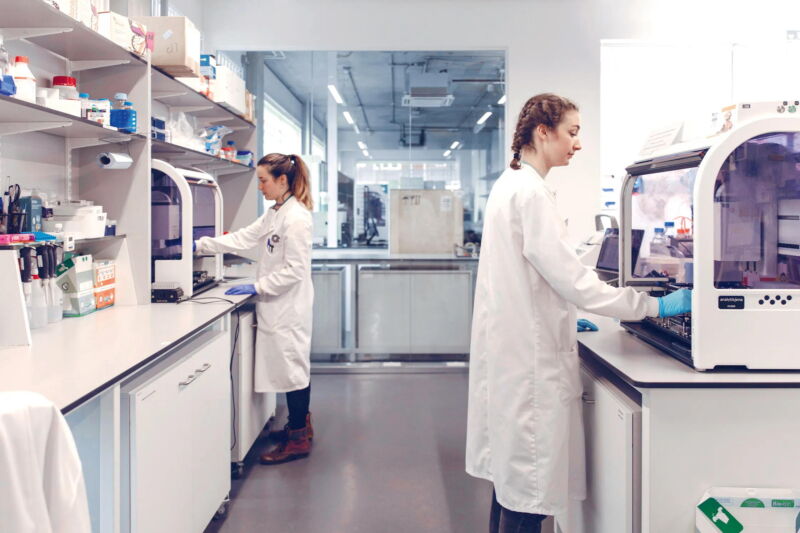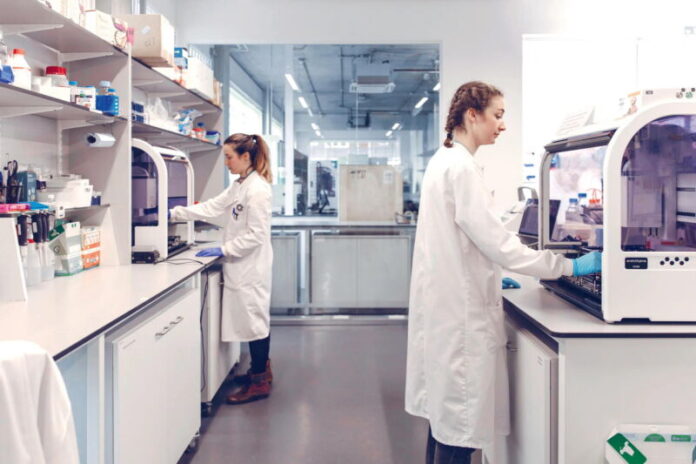
Enlarge / Researchers use CyBio FeliX workstations to extract and purify DNA samples for testing (credit: LabGenius)
At an old biscuit factory in South London, giant mixers and industrial ovens have been replaced by robotic arms, incubators, and DNA sequencing machines. James Field and his company LabGenius aren’t making sweet treats; they’re cooking up a revolutionary, AI-powered approach to engineering new medical antibodies.
In nature, antibodies are the body’s response to disease and serve as the immune system’s front-line troops. They’re strands of protein that are specially shaped to stick to foreign invaders so that they can be flushed from the system. Since the 1980s, pharmaceutical companies have been making synthetic antibodies to treat diseases like cancer, and to reduce the chance of transplanted organs being rejected.
Read 11 remaining paragraphs | Comments
Ars Technica - All contentContinue reading/original-link]




